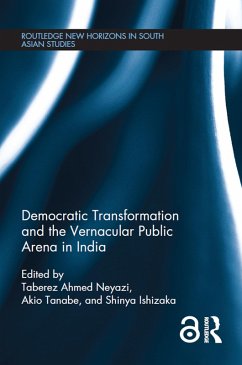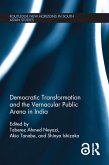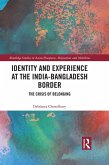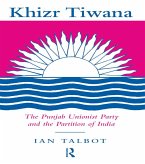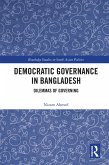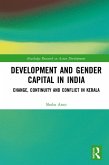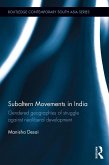Since the structural change in Indian society that began in the 1990s - the result of the liberalisation of the economy, devolution of power, and decentralisation of the government-an unprecedented, democratic transformation has been taking place. This has caused the emergence of unexpected coalitions and alliances across diverse castes, classes, and religious groups according to the issues involved.
In this volume, we intend to understand this deepening of democracy by employing a new analytical framework of the 'vernacular public arena' where negotiations, dialogues, debates, and contestations occur among 'vernacular publics'. This reflects the profound changes in Indian democracy as diverse social groups, including dalits, adivasis, and Other Backward Classes; minorities, women; individuals from rural areas, towns, and cities; the poor and the new middle classes-the 'vernacular publics'-participate in new ways in India's public life. This participation is not confined to electoral politics, but has extended to the public arenas in which these groups have begun to raise their voice publicly and to negotiate and engage in dialogue with each other and the wider world. Contributors demonstrate that the participation of vernacular publics has resulted in the broadening of Indian democracy itself which focuses on the ways of governance, improving people's lives, life chances, and living environments.
An original, comprehensive study that furthers our understanding of the unfolding political dynamism and the complex reshuffling and reassembling taking place in Indian society and politics, this book will be relevant to academics with an interest in South Asian Studies from a variety of disciplines, including Political Science, Sociology, Anthropology, and Media Studies.
The Open Access version of this book, available at http://www.taylorfrancis.com, has been made available under a Creative Commons Attribution-Non Commercial-No Derivatives 4.0 license.
In this volume, we intend to understand this deepening of democracy by employing a new analytical framework of the 'vernacular public arena' where negotiations, dialogues, debates, and contestations occur among 'vernacular publics'. This reflects the profound changes in Indian democracy as diverse social groups, including dalits, adivasis, and Other Backward Classes; minorities, women; individuals from rural areas, towns, and cities; the poor and the new middle classes-the 'vernacular publics'-participate in new ways in India's public life. This participation is not confined to electoral politics, but has extended to the public arenas in which these groups have begun to raise their voice publicly and to negotiate and engage in dialogue with each other and the wider world. Contributors demonstrate that the participation of vernacular publics has resulted in the broadening of Indian democracy itself which focuses on the ways of governance, improving people's lives, life chances, and living environments.
An original, comprehensive study that furthers our understanding of the unfolding political dynamism and the complex reshuffling and reassembling taking place in Indian society and politics, this book will be relevant to academics with an interest in South Asian Studies from a variety of disciplines, including Political Science, Sociology, Anthropology, and Media Studies.
The Open Access version of this book, available at http://www.taylorfrancis.com, has been made available under a Creative Commons Attribution-Non Commercial-No Derivatives 4.0 license.
Dieser Download kann aus rechtlichen Gründen nur mit Rechnungsadresse in A, B, BG, CY, CZ, D, DK, EW, E, FIN, F, GR, HR, H, IRL, I, LT, L, LR, M, NL, PL, P, R, S, SLO, SK ausgeliefert werden.

